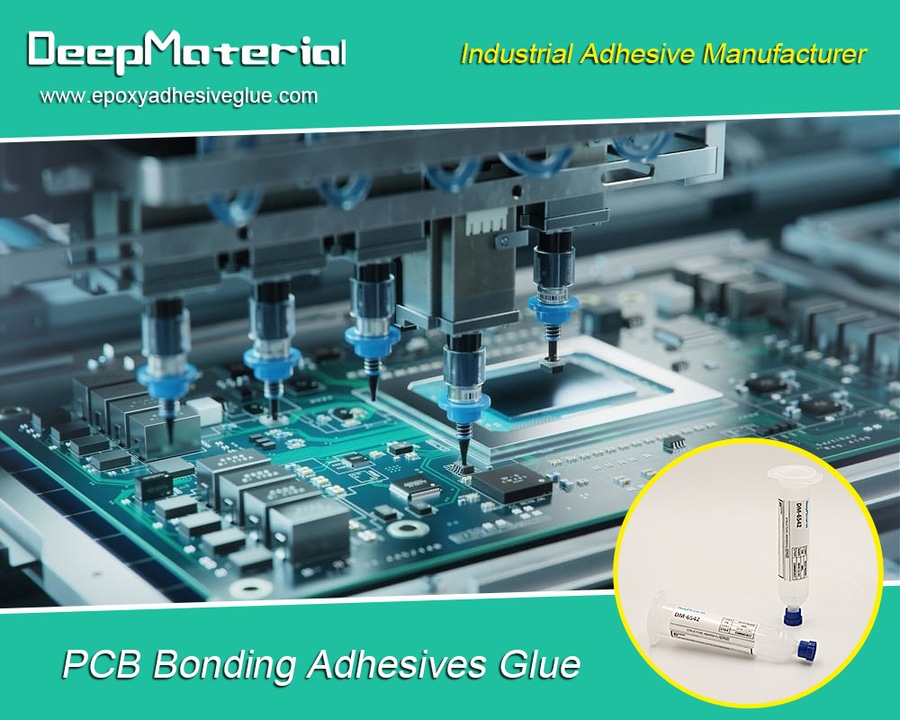
#Product Trends
What are electronic adhesives, and what is their purpose?
Best Electronic Adhesive Glue Manufacturer
Electronic adhesives, also known as electronic bonding materials or electronic glues, a type of adhesive specifically designed for use in the assembly and manufacturing of electronic devices. Electronic adhesives are formulated to meet the specific requirements of electronic applications, which often involve bonding delicate and sensitive electronic components,various components and materials within electronic circuits, devices, and systems, such as integrated circuits (ICs), semiconductors, resistors, capacitors, printed circuit boards (PCBs), and other electrical and electronic parts. These adhesives play a crucial role in ensuring reliable electrical connections, mechanical stability, and protection against environmental factors in electronic applications.
Industrial Hot Melt Electronic Component Epoxy Adhesive And Sealants Glue manufacturers
The purpose of electronic adhesives is to provide strong and reliable bonds between various components in electronic devices, and to bond and secure electronic components, provide electrical conductivity or insulation, offer thermal management, protect against environmental factors, and enhance vibration and shock resistance in electronic devices.
These adhesives serve multiple functions in electronic assembly and manufacturing processes, including:
Bonding: Electronic adhesives create a physical and chemical bond between different components, ensuring their stability and mechanical integrity. They can be used to attach components to PCBs, secure wire connections, or bond substrates together. Electronic adhesives are used to join different components together, such as integrated circuits (ICs), surface-mount devices (SMDs), connectors, resistors, capacitors, and other electronic parts. The adhesive forms a strong bond that holds the components in place.
Electrical conductivity: Some electronic adhesives are formulated to provide electrical conductivity, allowing them to create electrical pathways or connect electrical contacts. These conductive adhesives are often used in applications where traditional soldering may not be feasible or desirable.
Conduction: Some electronic adhesives are formulated to have conductive properties, allowing them to create an electrical pathway between components. These conductive adhesives are used for applications such as attaching IC chips to PCBs, forming conductive traces, or providing grounding connections.
Insulation: In contrast to conductive adhesives, electronic adhesives can also serve as insulating materials. They provide electrical insulation between components, preventing short circuits or unintended electrical connections. Adhesives with insulating properties are employed to electrically insulate specific areas or components within an electronic device. Insulating adhesives are commonly used in applications where electrical isolation is required, such as coating wire connections or encapsulating sensitive electronic components.
Thermal Management: Electronic devices generate heat during operation, and it is important to dissipate this heat to prevent damage to the components. Electronic adhesives can have excellent thermal conductivity properties, allowing them to transfer heat away from heat-generating components. This is crucial for maintaining the proper operating temperature of electronic devices and preventing overheating. Thermally conductive adhesives are often used for attaching heat sinks, bonding power devices, or providing thermal interface materials between components and heat dissipation elements.
Environmental Protection: Many electronic adhesives offer protection against moisture, dust, chemicals, and other environmental factors. They can create a barrier that shields sensitive electronic components from external contaminants, enhancing the device’s durability and reliability.
Vibration and shock resistance: Electronic adhesives must possess adequate mechanical strength and flexibility to withstand temperature variations, vibrations, and mechanical stresses encountered during the operation and assembly of electronic devices. In applications where electronic devices are subjected to vibration, shock, or mechanical stress, adhesives with high adhesion strength and flexibility are used to secure components and prevent their displacement or damage.
Chemical resistance: Electronic adhesives should be resistant to various environmental factors, including moisture, chemicals, solvents, and corrosion, to ensure long-term reliability and performance.
Curing methods: Electronic adhesives are available in various formulations, including one-component and two-component systems. One-component adhesives cure at room temperature or with the application of heat, while two-component adhesives require mixing of two components to initiate the curing process.
The specific type of electronic adhesive used depends on the application and the materials being bonded. Common types of electronic adhesives include conductive adhesives, epoxy adhesives, silicone adhesives, acrylic adhesives, and polyurethane adhesives. These adhesives are available in different forms, such as liquid adhesives, pastes, gels, tapes, and films,They are formulated to meet specific application requirements, such as curing time, viscosity, temperature resistance, electrical properties, and compatibility with different materials, and allowing for different application methods depending on the specific needs of the manufacturing process. These adhesives are typically formulated to exhibit excellent adhesion, electrical properties, thermal characteristics, chemical resistance, and long-term stability in electronic environments. Choosing the right electronic adhesive is crucial to ensure proper assembly, functionality, and longevity of electronic devices.
Industrial Hot Melt Electronic Component Epoxy Adhesive And Sealants Glue manufacturers
Overall, electronic adhesives are essential materials in the electronics industry, enabling the reliable and efficient construction of electronic devices while ensuring electrical connectivity, thermal management, and protection against environmental factors.
For more about choosing the best electronic adhesive,you can pay a visit to DeepMaterial at https://www.epoxyadhesiveglue.com/category/electronic-adhesives-glue/ for more info.





